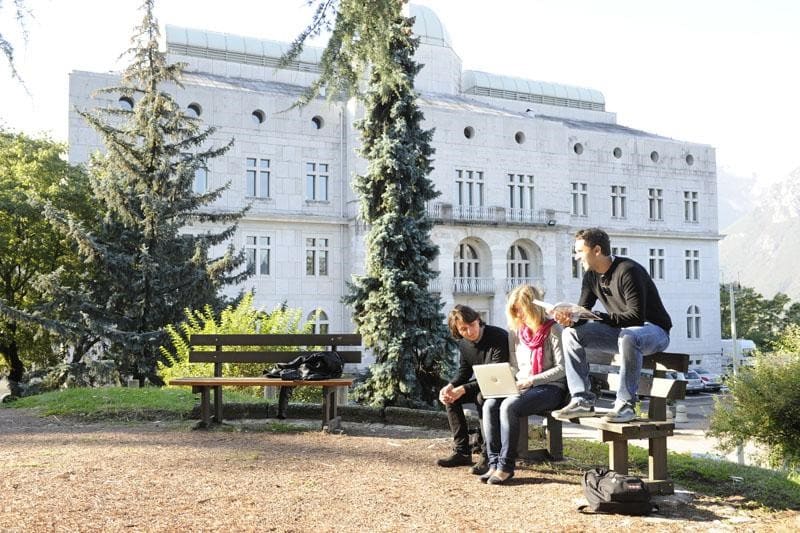
Master in Management and Industrial Systems Engineering (MISE)
Trento, Italy
DURATION
2 Years
LANGUAGES
English
PACE
Full time
APPLICATION DEADLINE
06 Mar 2025*
EARLIEST START DATE
Sep 2025
TUITION FEES
EUR 4,500 / per year **

STUDY FORMAT
On-Campus
* For non-EU citizens living outside Italy March 6th, 2025| For EU citizens and non-EU citizens regularly living in Italy: rolling admission from June to November 2025.
** EU 340€-3400€ (fee range based on personal income and merit); Non-EU: 1000€-4500€ (fee range based on merit only, i.e. score in the application evaluation).
Introduction
Modern industrial systems are distinguished by a significant complexity that requires a holistic approach for their appropriate management. The recent evolution and pervasiveness of modern digital technologies, which characterize the new productive and economic paradigms thanks to their cognitive and connectivity potential, is deeply modifying the operating context and the role of the engineer in the industry.
The engineer is now required to face the challenges posed by technological innovation and be able to adopt and manage them within the systemic complexity in which they are called to operate. Multi- and interdisciplinary approaches are typically required, along with in-depth knowledge and technical skills, as well as extensive knowledge and competence in economics and organizational structures.
The Master's degree in Management and Industrial Systems Engineering (MISE) aims to train engineers with the necessary skills to effectively manage and govern the processes that characterize the new production paradigm and the related industrial revolution. To this end, the program aims to provide very solid, but at the same time balanced, competencies both in technical disciplines as well as in disciplines related to the management of the systemic complexity of a modern industry. It also considers economic-organizational aspects and the challenges arising from environmental sustainability and digital technologies in industrial development.
The Master's degree in Management and Industrial Systems Engineering is especially addressed to students who have solid knowledge in the field of industrial engineering.
Program Overview
The Master's degree program in Management and Industrial Systems Engineering aims to train engineers with the necessary skills to effectively design and manage the processes that characterize the modern production paradigms, with particular attention to a complete technical background as a fundamental condition to allow these practitioners to interact with the different business units and functions.
The Master's degree program aims to train engineers with a holistic and integrated vision of industrial problems rather than an approach focused on single aspects or specific technologies. Master’s graduates in Industrial Systems and Management Engineering are distinguished by their ability to:
- Apply tools and methodologies for the design and management of complex industrial systems;
- Apply modern quantitative techniques to support decision-making processes;
- Manage the main digital technologies at the basis of the new industrial revolution;
- Apply methodologies for the promotion and management of innovation;
- Evaluate the environmental sustainability of industrial products and processes.

Admissions
Curriculum
The Master's program is characterized by courses of marked originality and innovativeness. Their contents are aligned with the most recent developments in academic and industrial research that are revolutionizing modern industrial systems, from product customization to processes environmental sustainability, from digitalization of industrial plants to quality and safety of production systems.
The first year of shared courses aims to provide students with a solid foundation in the disciplines characterizing engineering management and industrial systems. On this basis, students can differentiate their program in the second year thanks to the offer of two curriculums, called “Design and Sustainability” and “Management and Digitalization”
Credits required to complete the Master's degree program in Management and Industrial Systems Engineering: 120 ECTS.
Notes: according to the Sorbonne (1988) and Bologna (1999) declarations university- level study programs in the European Higher Education Area are structured in university credits (ECTS). One university credit corresponds to 25 hours of student workload, time for personal preparation included. The annual average workload for a full-time student is conventionally fixed at 60 credits.

Efrem Bertini
Scholarships and Funding
Scholarships for non-EU citizens living abroad
Top-scored candidates will be entitled to receive a UniTrento scholarship assigned by the Evaluation Committee based on the application score. Tuition fees are waived for students who receive a UniTrento scholarship.
The amount of tuition fees for Non-EU applicants living abroad is related to the application score obtained during the selection. For more information check the UniTrento scholarships web page.
Scholarships for EU Citizens and Non-EU citizens regularly living in Italy
DSU (Diritto allo Studio Universitario) Scholarships are available for EU citizens and Non-EU citizens living in Italy who meet the ISEE requirements based on family income. Further information is available on Scholarships starting from June/July.
Details about tuition fees and ISEE are available on the Opera Universitaria web page.

UniTrento Archive
Career Opportunities
Students graduating with a Master’s degree in Management and Industrial Systems Engineering (MISE) will be able to contribute effectively by working in complete autonomy and perfect coordination in the activities of multifunctional teams for the management and development of innovative and complex projects. They will also be able to join specific business functions or units (production, logistics, organization, human resources, purchasing, etc.) in which the graduate will be able to apply the\ acquired knowledge, even in contexts characterized by high technical and organizational complexity and innovation.
The roles that graduates can cover with functions of responsibility are related to the management of industrial production and logistics systems, the automation of production processes, the selection and implementation of industrial technologies including digital applications, quality assurance, and related certification processes. Building on specific experiences after the Master’s degree, these professionals can take on roles ranging from the production line manager to the manager of a distribution logistics platform, from the leader of interdisciplinary teams to the manager of technological innovation projects, from the referent for process quality to the sustainability manager of a facility plant. Thanks to the broad spectrum of acquired competencies and knowledge, they will also be able to find employment in applied research, as managers of different business areas, including marketing, purchasing and human resources, complex innovation projects, as well as in consulting and service companies.
The main career opportunities for graduates in Management and Industrial Systems Engineering concerns the entire manufacturing sector, the transformation and process industry, traditional services (transport, distribution, procurement), and advanced services (banking and insurance, IT, telecommunications) as well as public administration. Master graduates will be able to carry out high-level entrepreneurial activities or, after gaining specific experience, be employed in business and management consulting firms.
According to figures published by the Italian Institute of Statistics, the Master's degree program in Management and Industrial Systems Engineering contributes to the training of industrial and management engineers.
The Master's degree program has been tailored to allow students to embark upon international post-graduate level studies, such as the PhD programs offered at the University of Trento that include the Materials, Mechatronics, and Systems Engineering Doctoral School of the Department of Industrial Engineering.

UniTrento Archive
English Language Requirements
Certify your English proficiency with PTE. The faster, fairer, simpler English test, accepted by thousands of universities around the world. PTE, Do it worry-free!
Program Admission Requirements
Show your commitment and readiness for Grad school by taking the GRE - the most broadly accepted exam for graduate programs internationally.
